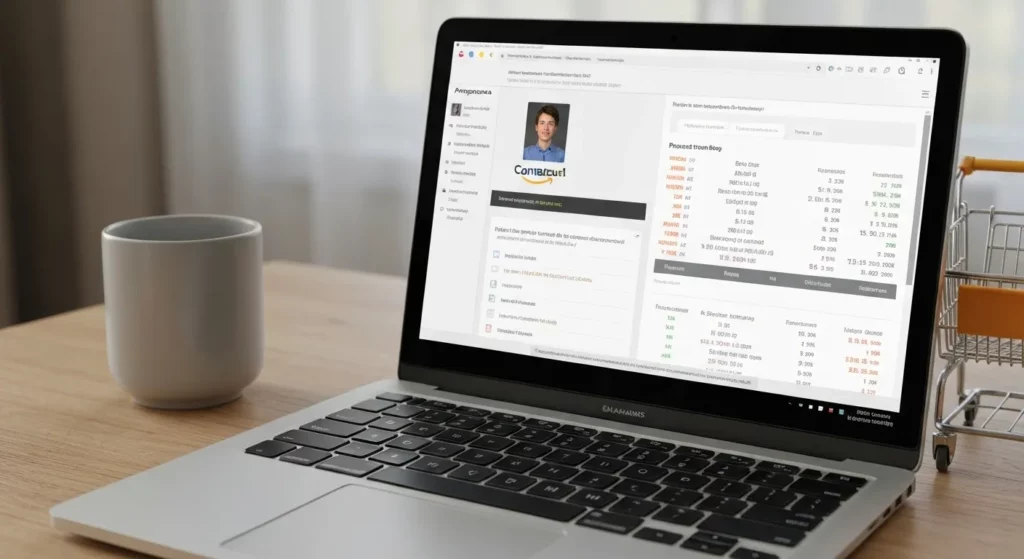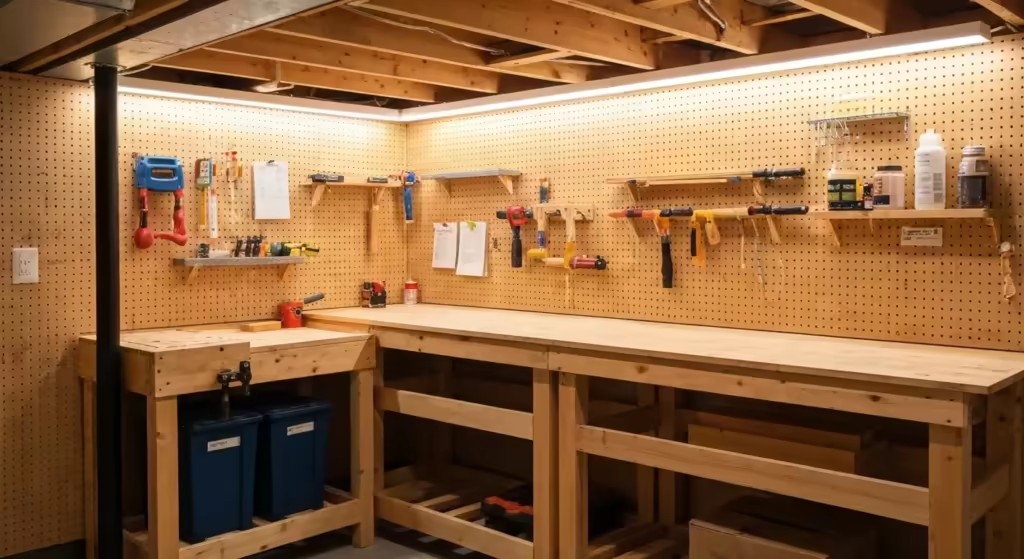If you want to pay off your mortgage early, keep reading!
Paying off your mortgage early can feel like a distant, almost impossible goal, but it’s more achievable than you might think! It’s a journey that transforms your financial landscape, moving you from a long-term debtor to a true homeowner. With patience, determination, and the right strategic approach, you can save tens of thousands of dollars in interest, gain profound financial freedom sooner than you ever imagined, and significantly reduce your day-to-day stress levels. The peace of mind that comes from owning your home outright is a reward in itself.
Whether you’re looking to aggressively speed up your payments or simply make a few smart financial changes here and there, you’re at the right place to get started. This guide is packed with actionable strategies that can fit any budget and lifestyle. By applying even one or two of these powerful tips, you’ll see firsthand how small, consistent changes—like making carefully designated extra payments, strategically cutting unnecessary costs from your budget, or refinancing to a more favorable loan term—can have a massive and tangible impact on your loan’s lifespan. Every dollar you prepay is a step closer to your goal.
Paying off your mortgage ahead of schedule means unlocking a significant portion of your monthly income, freeing up more money for your savings, high-growth investments, and those future dreams you’ve been putting on hold, and who doesn’t want that? Imagine a future where your largest monthly expense simply vanishes. That’s the freedom we’re talking about! So, if you’re ready to take decisive charge of your finances, empower yourself with knowledge, and unlock the direct path to being a happier, more relaxed, and financially resilient homeowner, here are all the tips you need to make it happen. Are you ready? Let’s begin!

1. Refinance your mortgage
If you want to pay off your mortgage early, a powerful strategy to consider is refinancing. You can talk to a trusted mortgage expert or your current lender about this option. When you refinance, you essentially replace your existing mortgage with a completely new one, hopefully with new and more advantageous terms. The most common reason to refinance for this goal is to secure a shorter loan term, for instance, moving from a 30-year mortgage to a 15-year one. However, to be eligible, your lender has to do a couple of things to assess your financial standing. They’ll figure out your loan-to-value (LTV) ratio by taking the total amount you still owe on your mortgage (along with any other loans tied to your home) and dividing it by how much your property is currently worth. A lower LTV is always better. They will also look at your credit score and income stability. It sounds complicated, but a good loan officer can walk you through it, and if it works out, it can help you a lot!
With this technique, you might opt for significantly reducing your loan term, such as from 30 years down to 20 or 15. This will almost certainly increase your monthly payment, but the total interest you pay over the life of the loan will be dramatically lower. It’s crucial to talk to an expert about this because the benefits are different from one scenario to another. You must also consider the closing costs of a refinance, which can be several thousand dollars. You’ll need to calculate your “break-even point”—the point at which your savings from the new interest rate surpass the closing costs—to ensure it’s a financially sound decision for your specific situation.
2. Make an extra payment
In case you have the extra money in your budget, I couldn’t recommend this tip enough! It’s perhaps the most straightforward and effective method available. You can pay off your mortgage faster by making just one single additional payment each year. Because of how mortgage amortization works, where early payments are heavily weighted toward interest, that single extra payment can help you reduce the term of your loan significantly. On a typical 30-year mortgage, one extra payment per year can shave off approximately four to five years from your loan term and save you thousands in interest. So if it’s possible, go for it without hesitation.
One of the most affordable and sustainable ways to do this is to employ the “1/12th extra” method. You simply take your monthly mortgage payment, divide it by 12, and add that small amount to every payment you make throughout the year. It won’t feel like a huge chunk of money paid at once, making it easier on your monthly budget. For instance, if you have a $900 mortgage payment, 1/12th of that is $75. By paying an extra $75 each month ($975 total), you’ll have paid the equivalent of an entire extra payment by the end of the year. This small, consistent effort compounds into major savings over time, which is pretty good for such a simple adjustment!
3. Other additional payments
We’ll keep going with these tips to help you pay off your mortgage faster, but we’re not done yet—those extra payments can make a huge difference in various forms! You guessed it: if you want to save a substantial amount of money on interest while actively reducing the term of your loan at the same time, you’ll need to make a couple of extra payments whenever you can. This is about being proactive and seizing opportunities to send more money toward your principal balance.
Before you get started, keep in mind that some lenders will charge a prepayment penalty for paying off your mortgage early, or for paying more than a certain percentage above your required payment in a single year. These clauses are less common now than they used to be, but it’s vital to check your loan agreement or call your lender to see if this is your case or not. If the odds are in your favor and there are no penalties, think about these crucial payoff tips.
The first and most critical thing you should do is explicitly let your lender know that any and all additional payments should be applied directly to the loan’s principal, not to future interest or your next scheduled payment. If you don’t specify this, they will often apply the extra funds towards your next scheduled monthly payment, which simply pays it in advance but does not reduce your principal balance or save you any interest. You can usually do this by writing a clear note on your payment coupon, selecting an option in your online payment portal, or calling your lender to ensure the funds are allocated correctly.
Another tip from experts is to do your best to prepay at the beginning of the loan when interest costs are the highest. In the early years of a mortgage, the vast majority of your monthly payment goes toward your interest rather than the principal balance. This is the nature of an amortization schedule. As you already know, interest is compounded, meaning that the total amount owed (principal plus interest) determines the interest payable monthly. By making principal-only payments early on, you shrink the balance on which future interest is calculated, creating a powerful ripple effect of savings that accelerates your path to being mortgage-free.
So, before you make any changes or send any extra cash, keep in mind that you need to discuss your plan with your lender. Have a clear strategy and understand their policies. You might want to pay off your mortgage early, but you must do it the smart way to ensure every extra dollar works as hard as you do!

4. Round up your payments
Another fantastic and virtually painless way to pay off your mortgage early is to round up your monthly payment. This strategy is beautiful in its simplicity. For instance, if you have to pay $780 a month, you simply pay $800 instead. Long story short, round up to the next highest $50 or $100 amount that feels comfortable for your budget. Even if it’s only a small change that might go unnoticed in your monthly cash flow, those little things make the biggest difference in the long run. An extra $20 per month is $240 per year applied directly to your principal. Over 30 years, that’s an extra $7,200 paid down, which could save you much more in interest and shorten your loan term. The most important thing here is consistency. Follow this tip every single month, and you’ll pay off your mortgage much faster than you thought possible.
5. Use unexpected income
Sometimes, life blesses you with a financial windfall. You might be lucky to receive unexpected income, such as from tax refunds, holiday bonuses, performance bonuses or tips at work, an inheritance, freelance projects, or even cash-back rewards from your credit card. Since there’s a high possibility you weren’t expecting this money or counting on it for your regular budget, you can use the extra funds to make a substantial additional mortgage payment. The best part is that it won’t cut into your typical monthly budget at all. The key is to have the discipline to allocate this money toward your mortgage *before* you’re tempted to spend it on something else. Think of it as turning a short-term gain into a long-term victory for your financial health.
6. Try the dollar-a-month plan
If you’re fortunate enough to see your income steadily rise over time, even by a little, you’ve got a great opportunity to pay off your mortgage faster without feeling the pinch! A simple and incredibly effective tip to take advantage of this is the dollar-a-month plan, also known as a payment accelerator. With this clever method, you’ll make gradual, manageable increases to your payments each month, helping you chip away at that mortgage sooner than you think. It’s designed to be so gradual you barely notice it.
All you have to do is increase your payment by just $1 each month. For example, if your regular payment is $900, you’ll pay $901 in the first month. In the second month, you’ll pay $902, then $903 in the third, and so on. It feels tiny at first, but the increase is cumulative and becomes very powerful over time. As an illustration, if you were to take out a $150,000 loan with a 30-year, $900 monthly mortgage and a fixed interest rate of 6%, this simple dollar-a-month strategy could shorten the length of your mortgage by a staggering eight years and save you tens of thousands in interest.

7. Make biweekly payments
If your financial situation allows for it, you can pay off your mortgage faster by making biweekly payments. This means you pay half of your monthly mortgage amount every two weeks. Keep in mind that this tip might not work for everybody because not all lenders allow this type of payment instead of the regular monthly ones, and some third-party services that offer to manage this for you charge unnecessary fees.
The magic of this method lies in simple calendar math. There are 12 months in a year, but 52 weeks. By paying every two weeks, you’ll make 26 half-payments, which is equivalent to 13 full monthly payments by the end of the year, not 12. You may need to apply for this option, so always ask your lender first about their specific program. Be wary if they charge extra fees for biweekly payments, as it could end up costing you more than it saves. A better option, if that’s the case, is to make one extra payment each year yourself, or use the 1/12th method described earlier. It has the same powerful effect as biweekly payments—essentially giving you an extra mortgage payment by the end of the year—without the added fees or hassle!
Making biweekly mortgage payments can help you pay off your mortgage faster and reduce your overall borrowing costs, similar to making other additional payments toward your principal. The accelerated schedule attacks your principal balance more frequently. Furthermore, a biweekly payment schedule can also make it much easier to manage your personal finances, as it often aligns perfectly with the pay schedule of many hourly and salaried employees who are paid every two weeks. This can make budgeting feel more natural and intuitive.
Why should you think about paying off your mortgage faster?
We’ve talked about the different methods to pay off your mortgage faster, and while we’ve said that it allows you to be more relaxed, it’s time to dive deeper into the truly profound benefits. One of the main reasons homeowners decide to do this is the immense interest savings. Over a 30-year term, you can easily pay more in interest than the original price of your home. By shortening the loan term, you can save tens or even hundreds of thousands of dollars that would have otherwise gone to the bank.
Moreover, this helps you become a truly free homeowner much sooner, building equity at a rapid pace. Equity—the portion of your home you actually own—is a powerful asset. The faster you build it, the more financial flexibility you have. Owning your home outright also means you’ll be better prepared and more financially secure even if a tragedy strikes, like an unexpected income reduction or a job loss. Removing your largest monthly bill creates an incredible safety net.
Of course, this path isn’t for everyone. Some financial experts argue that you could earn a higher return by investing extra money in the stock market instead of paying down a low-interest mortgage. This is a valid point that depends on your personal risk tolerance. However, paying off your mortgage offers a guaranteed, risk-free return equal to your mortgage’s interest rate. For many, the unparalleled peace of mind is worth more than any potential market gain. The key is to make a conscious decision. So, don’t feel pressured to pay off your mortgage faster, but do recognize it as a powerful and valid financial goal. As long as you don’t use your emergency savings or neglect other important financial goals like retirement savings to pay off your mortgage, you’re good to go.
What do you think about all these tips? Did you find any of these helpful for your own financial journey? Taking control of your biggest debt is a huge step toward lasting wealth and security. If you want to dive deeper into the subject of personal finance and debt elimination, I recommend you check out this book, and if you prefer to set some money aside visually to motivate yourself, here’s a cute piggy bank for you!
Until next time, here’s another great post to check out that will help you reframe your thoughts on money: 15 Hollywood Movies with Life-Changing Financial Messages














